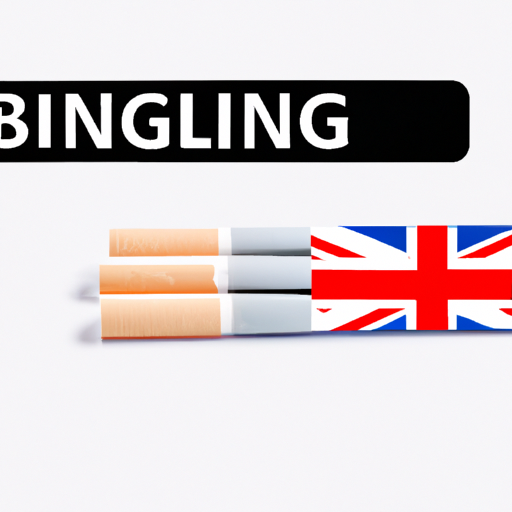
As a smoker living in the UK, I have seen first hand the impact that cigarettes have on our society. Despite the numerous health warnings and campaigns to quit smoking, cigarettes remain a prevalent part of our culture. From the iconic packs of Marlboro to the trendy Juul pods, cigarettes have evolved over the years, but their effects on both individuals and society as a whole remain the same.
In this article, I will delve into the history of cigarettes in the UK, the consequences of smoking, and the current state of the tobacco industry.
History of Cigarettes in the UK
Cigarettes were first introduced to the UK in the late 16th century by Spanish explorer Rodrigo de Jerez, who had witnessed native Americans smoking tobacco leaves. However, it wasn’t until the 19th century that cigarettes became popular among the general public.
During World War I, the British government provided cigarettes to soldiers as part of their ration, which increased their usage. This continued post-war, with cigarette consumption increasing from 3.4 billion to 6.6 billion between 1927 and 1934.
In the 1950s, tobacco companies began mass-producing filtered cigarettes, marketed as a “safer” alternative to traditional cigarettes. This led to a significant increase in smoking rates, with more people picking up the habit.
Consequences of Smoking
Smoking has been linked to numerous health issues, including lung cancer, heart disease, stroke, and respiratory diseases. In the UK, smoking is responsible for over 100,000 deaths each year, making it the biggest preventable cause of death.
Aside from the immediate health consequences, smoking also has a significant impact on the economy. According to a study done by the British Medical Journal, smoking-related illnesses cost the UK’s economy over £11 billion per year, including healthcare expenses and lost productivity.
Furthermore, secondhand smoke is also a pressing issue, with non-smokers exposed to the harmful effects of cigarettes. This has led to a ban on smoking in public places, with fines for individuals caught smoking in prohibited areas.
Current State of the Tobacco Industry
Despite the consequences of smoking, the tobacco industry continues to thrive in the UK. It is estimated that over 7 million adults in the UK smoke, with an additional 200,000 young people picking up the habit each year.
The industry is heavily regulated, with strict laws in place to limit the marketing and promotion of cigarettes. However, tobacco companies have found ways to bypass these restrictions, such as using social media influencers and sponsoring events and venues.
The rise of e-cigarettes and vaping has also had a significant impact on the tobacco industry in recent years. While marketed as a healthier alternative to traditional cigarettes, experts warn that the long-term effects of these products are still unknown. Additionally, the popularity of e-cigarettes has led to a new generation of young people becoming addicted to nicotine.
Efforts to Reduce Smoking Rates
The UK government has been making efforts to reduce the number of smokers in the country. One of the most significant steps taken was the introduction of graphic health warnings on cigarette packaging. These warnings, such as images of diseased lungs and rotting teeth, aim to deter people from smoking.
Tobacco taxes have also been increased, making cigarettes more expensive and less accessible. In 2019, the government announced a target to reduce smoking rates in England from 14.9% to 12% or less by 2022.
Quit smoking services, such as the NHS Smokefree programme, provide support and resources for individuals looking to quit smoking. However, with the addictive nature of cigarettes, quitting is often a challenging and ongoing process.
Personal Reflections on Smoking in the UK
I started smoking in my late teens, influenced by friends and the social pressures to fit in. At the time, I saw it as a way to relieve stress and relax. However, as the years went by, I realized the hold that cigarettes had over me.
I have tried multiple times to quit, but the urge to reach for a cigarette in times of stress or social situations has always been difficult to resist. Additionally, the addictive nature of cigarettes makes it challenging to quit cold turkey.
I have also seen the effects of smoking on my loved ones. My grandfather, a heavy smoker for most of his life, passed away due to lung cancer at the age of 67. This personally affected me and made me more aware of the long-term consequences of smoking.
Conclusion
In conclusion, cigarettes continue to be a prevalent part of our society in the UK. While efforts have been made to reduce smoking rates, the tobacco industry remains a multi-billion-pound business. As smokers, we must be aware of the consequences of our actions and strive to quit or reduce our consumption.
The UK government also plays a crucial role in implementing stricter regulations and providing support for those looking to quit smoking. As a society, we must continue to educate future generations on the dangers of cigarettes and work towards creating a smoke-free environment for all.